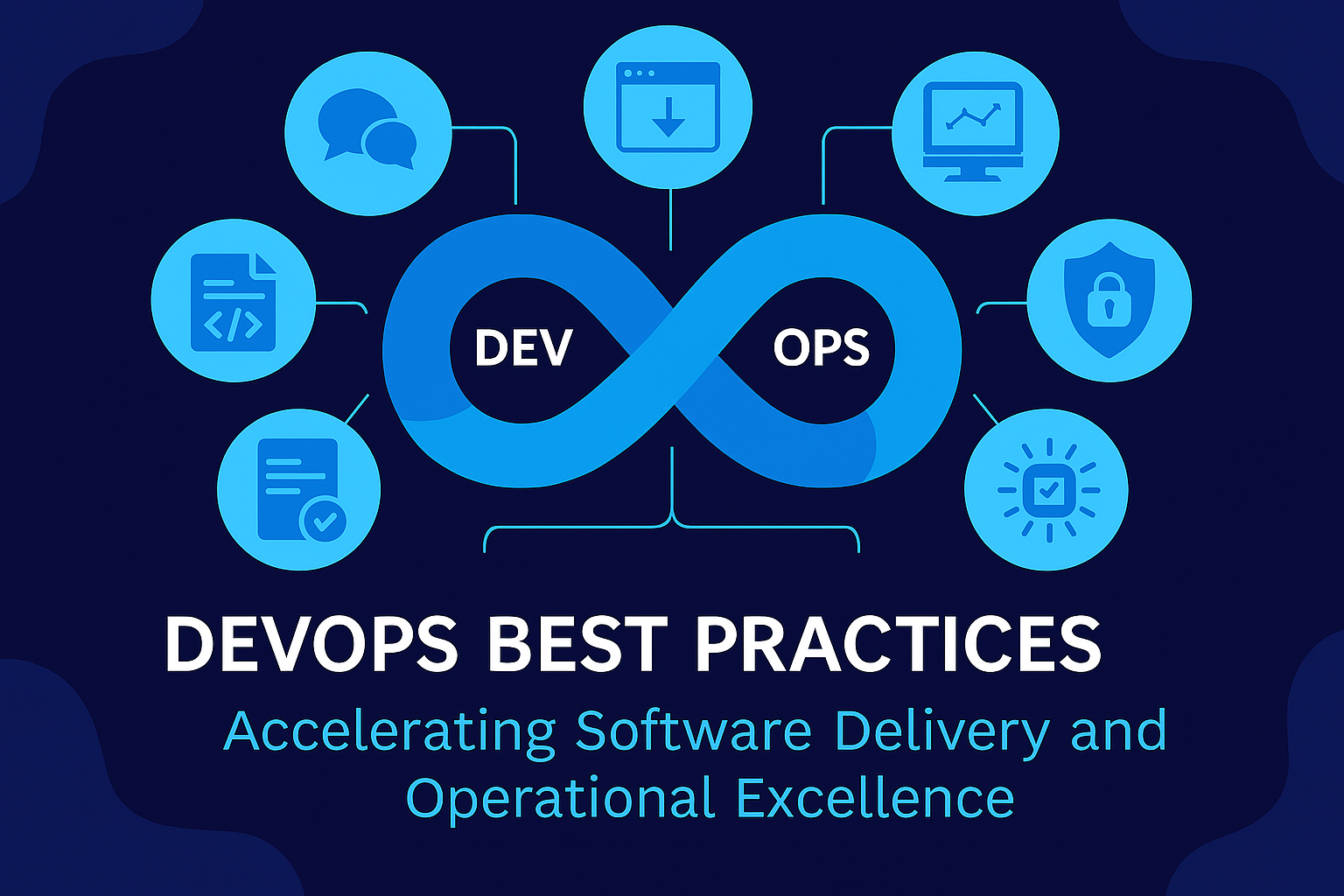DevOps represents a cultural and technical shift that aims to unify software development (Dev) and IT operations (Ops), fostering collaboration, automation, and continuous improvement throughout the entire software lifecycle. This comprehensive blog post outlines essential DevOps best practices that enable organizations to accelerate software delivery, enhance product quality, and achieve operational excellence. We’ll start by defining the core principles of DevOps, emphasizing its focus on communication, collaboration, integration, and automation across teams. The article will then delve into the critical practice of Continuous Integration (CI), explaining how developers frequently merge their code changes into a central repository, followed by automated builds and tests, which helps detect and address integration issues early. Building upon CI, we’ll explore Continuous Delivery (CD) and Continuous Deployment (CD), detailing how these practices automate the release process, ensuring that software can be reliably released to production at any time, or even automatically deployed upon successful testing. A significant section will be dedicated to Infrastructure as Code (IaC), explaining how managing and provisioning infrastructure through code (e.g., using tools like Terraform, Ansible, CloudFormation) ensures consistency, repeatability, and version control, eliminating manual errors and speeding up environment setup. Monitoring and logging are paramount in a DevOps environment, and the blog will cover best practices for implementing comprehensive observability, including collecting metrics, logs, and traces, to gain real-time insights into application performance and system health, enabling proactive issue resolution. We’ll also discuss the importance of automated testing at every stage of the pipeline, from unit and integration tests to performance and security tests, ensuring high-quality releases. Security, often referred to as DevSecOps, will be a key focus, detailing how security practices should be integrated early and continuously throughout the development pipeline, rather than being an afterthought. The article will also highlight the cultural aspects of DevOps, emphasizing the need for cross-functional teams, shared responsibility, and a blameless culture that encourages learning from failures. Furthermore, we’ll explore the role of version control systems (like Git) as the foundation for collaborative development and change management. Finally, the blog will provide actionable advice on implementing these best practices, including starting with small, incremental changes, fostering a culture of continuous learning, and leveraging the right tools and technologies to support the DevOps journey, ultimately leading to faster time-to-market, improved reliability, and greater business agility.

